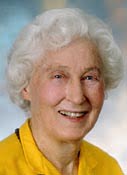Death Comes to Marie-France – Chet Snow (Is.3)
by Chet Snow, Ph.D.
 During the years I have been commuting between the United States and France I have made friends and lost track of many Parisians, but an exception was Marie-France, who remained a valued friend for over twenty years. As a well-known pianist she followed the vagaries of my changing career from graduate student at the Sorbonne, to researcher for the U.S. Air Force, to regression therapist and researcher into past-life experiences.
During the years I have been commuting between the United States and France I have made friends and lost track of many Parisians, but an exception was Marie-France, who remained a valued friend for over twenty years. As a well-known pianist she followed the vagaries of my changing career from graduate student at the Sorbonne, to researcher for the U.S. Air Force, to regression therapist and researcher into past-life experiences.
Marie-France had undergone a lengthy psychoanalysis and from her long experience in introspection became interested in the idea of other lifetimes and the survival of the soul beyond physical death. This interest led her to do a session with me in which she discovered a recent … Read the rest





 Alcohol and drug addictions are the most pervasive public health problems on the American scene today and rank only slightly below heart disease and cancer as killers and disablers. They contribute to escalating crime rates, to business and industrial inefficiencies and waste, to family turmoil and relationship problems, and to accidents at home, in the workplace, and on streets and highways. An ongoing research project called ADDICTO/KARMA has been designed to expiate possible causes for addiction through the use of regressive hypnosis.
Alcohol and drug addictions are the most pervasive public health problems on the American scene today and rank only slightly below heart disease and cancer as killers and disablers. They contribute to escalating crime rates, to business and industrial inefficiencies and waste, to family turmoil and relationship problems, and to accidents at home, in the workplace, and on streets and highways. An ongoing research project called ADDICTO/KARMA has been designed to expiate possible causes for addiction through the use of regressive hypnosis.
 Introductory Note:
Introductory Note: